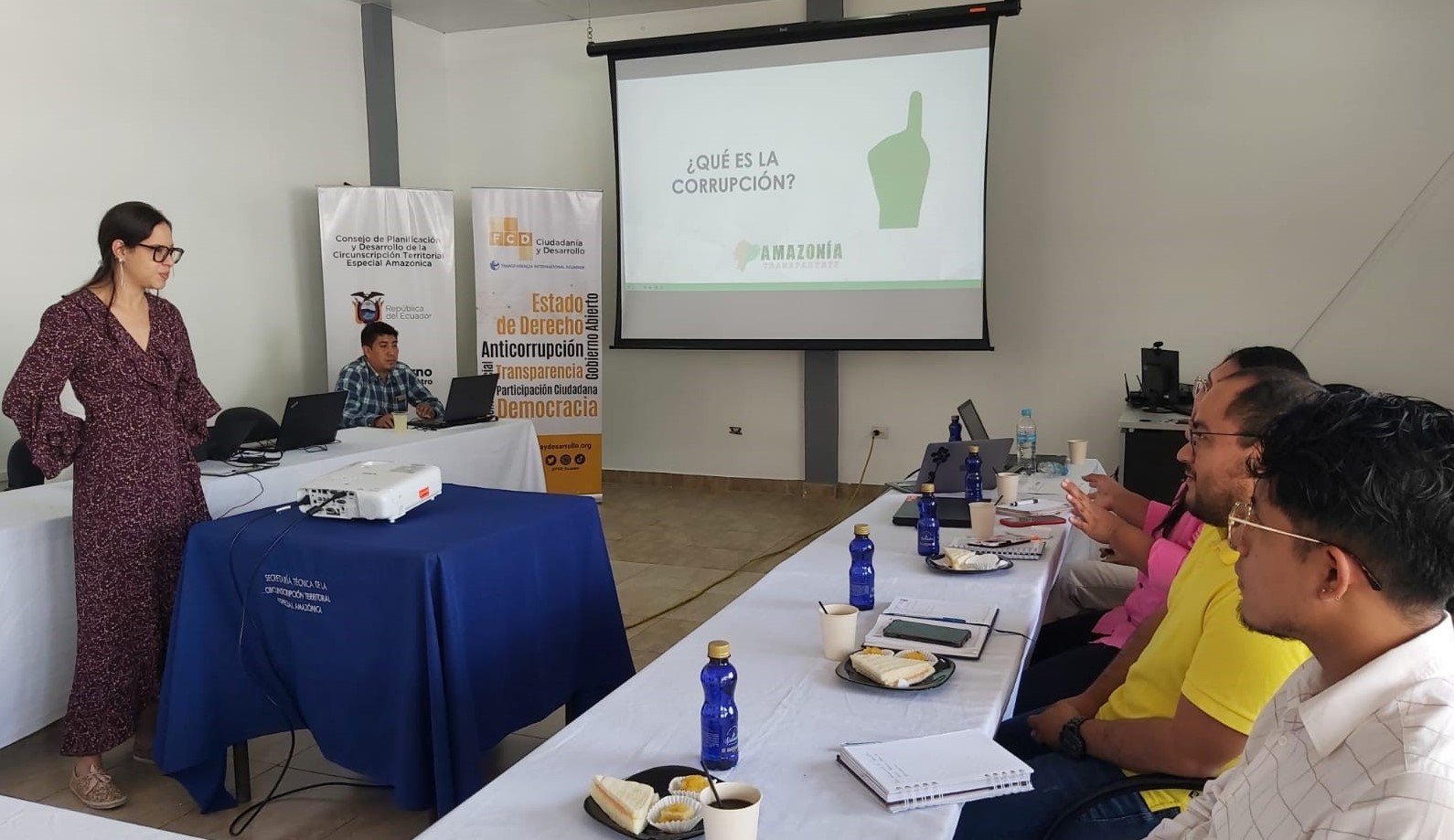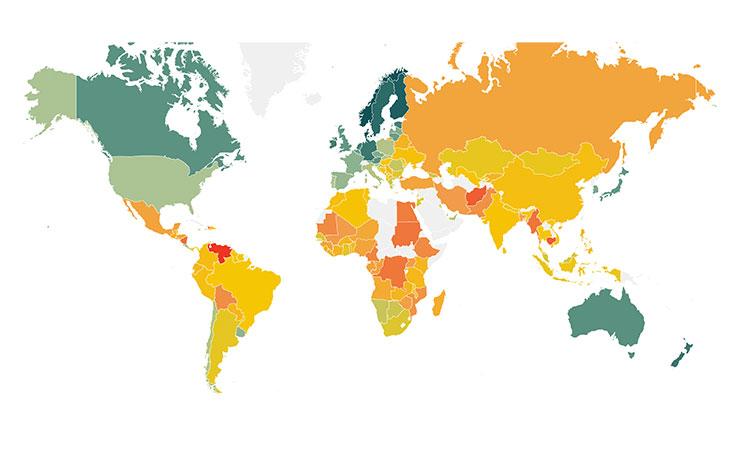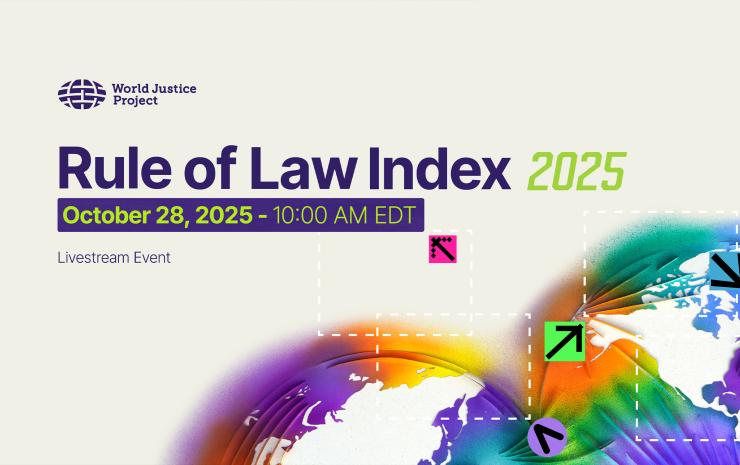

On October 15, voters in Ecuador will elect a new president. Luisa Gonzalez and Daniel Noboa are vying for the position in a runoff election that was spawned after President Guillermo Lasso dissolved Congress in an attempt to avoid impeachment proceedings against him. Lasso called for national elections and announced he would not run for re-election.
As Ecuador looks ahead to next month’s runoff election, WJP spoke with Mauricio Alarcón Salvador, executive director of World Justice Challenge finalist Fundación Ciudadanía y Desarrollo (FCD Ecuador), about the impact of current events in Ecuador on their work to improve transparency and accountability and on broader anti-corruption policy in the country.
------------------------------------------------------------------------------------------------------------------------------------------------------------------------------
WJP: On August 10, Fernando Villavicencio, a candidate that was rising in the polls, was assassinated while leaving a campaign event. Villavicencio had frequently spoken out about corruption and crime in the country while on the campaign trail.
Could you briefly explain the current political situation in Ecuador and the biggest challenges?
Alarcón Salvador: The biggest challenge facing the country is combatting insecurity caused by the increasing presence of drug trafficking and organized crime groups, without forgetting that the economy and corruption are also citizens’ priorities for the new government.
WJP: How has FCD Ecuador’s work been affected?
Alarcón Salvador: With the increase in insecurity, the organization is carrying out risk assessments with a view to implementing plans to protect our team. Given the political situation, we have continued working in the electoral context, making candidates' resumes transparent and monitoring political financing, as well as our usual activities. Our commitment to democracy, transparency and the rule of law remain unwavering.
WJP: According to our research on rule of law in Ecuador, only 20% of people believe that top government officials would be held accountable for breaking the law. Additionally, WJP data shows that most Ecuadorans believe that the legislature is corrupt. How is FCD Ecuador responding to these challenges?
Alarcón Salvador: FCD’s work is focused on what we call "back to basics," that is, to promote citizen knowledge of the concept of democracy and its fundamental pillars. Nobody promotes and defends what they don't know, and we have realized that the majority of citizens believe that democracy is just going to vote. This promotion of the concept of democracy is done through capacity building processes and citizen campaigns.
We also investigate corruption and promote transparency and integrity in all sectors. Our investigations and reports reach citizens, the media, the private sector and organizations.
Open government is key for transparency and accountability, which can only be achieved when citizens are actively involved in government.
WJP: Ecuador’s presidential election heads to a runoff on October 15. What is FCD Ecuador doing to prepare?
Alarcón Salvador: Looking ahead to the second round in October, and in line with the work that FCD has previously done in electoral processes, we will continue to report on the candidates and their government plans.
We will also follow up on the financing of their campaigns, their income and expenses, and the accountability they must do before the electoral authority. Of course, we will seek to talk with the two finalist candidates about anti-corruption and open government policies that work, and we hope they will continue these policies if elected.
WJP: In the 2022 WJP Rule of Law Index, Ecuador ranks 92 out of 140 countries and jurisdictions on absence of corruption. Ecuador also ranks 86 out of 140 on whether executive officials in the government use their office for private gain.
Presidential Candidate Luisa González is aligned with former President Correa, who was sentenced to 8 years on corruption charges, what are the two candidates’ positions on corruption?
Alarcón Salvador: Unfortunately, the position of the two finalist candidates has not been clear in terms of actions against corruption. Their government plans do not address the issue in depth. Although in their interviews in the media they talk about fighting corruption, their positions are different. Luisa González’s anti-corruption policy addresses the two previous administrations but does not address the actions of her political mentor and his government. Additionally, very little is known about Daniel Noboa’s anti-corruption policies. His government plan does not address the issue and in his public statements he has not spoken about it either. It is worrisome that in general the candidates only mention the issue of corruption but do not propose viable solutions to combat it.
WJP: What are your hopes for the new government?
Alarcón Salvador: We hope that the new government, despite having only 18 months to work before the next scheduled election, can demonstrate to the country that good governance is possible by addressing priority problems for Ecuadorians. We also hope that open government policies continue and that collaborative spaces that improve governance are strengthened. It is very important that this government dedicate efforts to promote transparency and integrity and that it can show Ecuadorians that fighting corruption and recovering the resources that have been stolen from us is possible.






